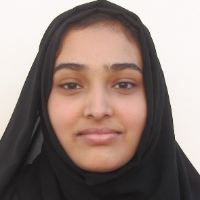4th International Conference on
Neurology & Neurological Disorders
October 15-16, 2026 | Paris, France

Neurology 2026

King Saud bin Abdulaziz University for Health Sciences, Saudi Arabia
Title : Pharmacotherapy for treatment of fatigue in multiple sclerosis: A comprehensive systematic review
Abstract:
Multiple
sclerosis (MS) is a demyelinating autoimmune inflammation of the central
nervous system in which fatigue is commonly experienced. Due to conflicting
evidence on medication efficacy, researchers conducted a systematic review to
provide a clear conclusion on which drug most effectively manages fatigue in
MS. Registered with PROSPERO (ID: CRD42024500165), the study encompassed a
comprehensive search in multiple databases (PubMed, Embase, Cochrane, Web of
Science, Scopus) for clinical trials and prospective/retrospective cohort
studies evaluating fatigue treatments in MS. Risk of bias was assessed using
the Cochrane RoB 2 tool. Eleven studies were included in the review.
Amantadine's effects on fatigue was mixed—some studies found improvements in
Fatigue Severity Scale (FSS) scores, while others did not. For modafinil, two
studies reported decreases in FSS after treatment compared to baseline and
placebo, but another study found no significant differences in Modified Fatigue
Impact Scale (MFIS) scores versus placebo. A crossover study comparing
methylphenidate, amantadine, modafinil, and placebo observed no statistically
significant differences in MFIS scores. This study highlighted the complexity
and variability in pharmacotherapy effectiveness for managing fatigue in MS. Amantadine
was the most extensively studied, but its efficacy was inconsistent. Modafinil
and acetyl-L-carnitine also demonstrated potential benefits, but findings were
not consistently significant. Memantine showed a non-significant trend, while
methylphenidate had limited supporting evidence. The heterogeneity in results
was likely due to differences in study designs, fatigue assessment tools,
patient populations, and outcome measures. Careful monitoring is needed, as adverse
events were reported across all studied medications
Biography:
Hala Emad A Danish is 6th year medical student in King Saud Bin Abdulaziz University for Health Sciences, Jeddah, Saudi Arabia. she have unrelenting curiosity and interest regarding improved patient quality of life and involving others in this endeavour by leading the Internal Medicine Club in my university. she like to explore this through both research and campaigns by hosting patient awareness activities in the latter where dire consequences ensue: covid-19 pandemic, bone marrow transplantation, common infectious disease in primary health care, and breast cancer.
